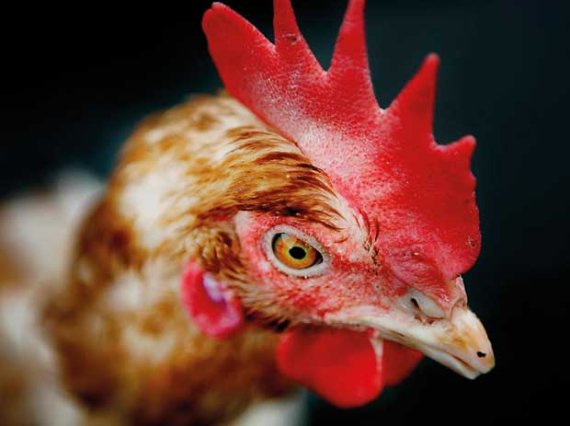It has been standard practice in the poultry sector for many years to trim the beaks of chickens to prevent them from pecking one another to death. But debeaking is undesirable from the point of view of animal welfare, says state secretary Dijksma. Therefore, she has recently proposed a ban, to be implemented in 2018. By then, scientists should have figured out how to get chickens to live together peacefully, for example by adjusting housing conditions or using another management system. But the politician also points to research aimed at breeding a ‘peace-loving chicken’. Breeding researcher Piter Bijma is asked to comment on whether Dijksma’s expectations are realistic. Are you managing to breed a docile chicken using selection techniques? ‘We are certainly making progress. When we began our experiment, there was a 30 per cent dropout rate due to mortality. This rate went down to 15 per cent in the fourth generation in the Netherlands. This is an improvement of 3 to 4 per cent for each generation. However, there are ‘diminishing returns’. As mortality goes down, further improvement becomes more difficult to achieve.’ Does this mean a peace-loving chicken (with intact beak) is feasible? ‘Not immediately. We are working with a pure breeding line. Farmers with laying hens always work with commercial crossings which, at most, use our line as one part. To transfer the characteristics of our chicken breeds to the cross-breeds would take several more years. Housing can also affect the result. Our chickens are kept in a Canadian battery system while the chickens in the Netherlands are currently being kept in large flocks. The death rate there can go up further.’ Are peace-loving chickens also good production animals? ‘We have discovered a slight link between cannibalism and egg production: the sociable chickens start laying eggs a little later. This research is still going on, so we cannot provide definite figures yet.’ Is Dijksma’s confidence that a solution will be found in 2018 well-placed? ‘Our conclusion is that breeding techniques can clearly reduce cannibalism. But we cannot bring the mortality rate down to zero with breeding solutions alone. Innovations in other areas, such as housing, are just as important.’
Peace-loving chicken or bloodbath in 2018?
Ban on 'debeaking' hinges on scientific success.'Not possible to stop feather pecking completely.'

